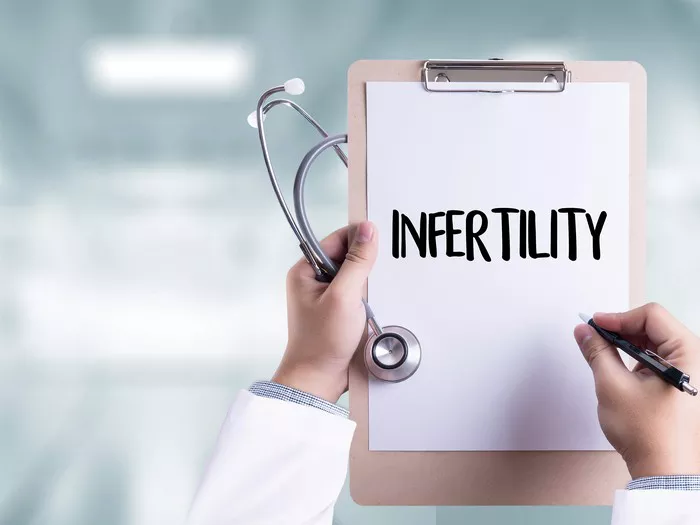Infertility is a growing concern worldwide, impacting millions of individuals and couples who aspire to conceive. Current statistics paint a stark picture of this issue, with rates on the rise globally. According to recent data from the World Health Organization (WHO), approximately 10-15% of couples worldwide are affected by infertility, highlighting the prevalence and urgency of addressing this significant health challenge.
Health Factors Contributing to Infertility
A myriad of health-related factors can contribute to infertility, affecting both men and women. Hormonal imbalances, polycystic ovary syndrome (PCOS), endometriosis, and low sperm count are among the common culprits. Hormonal imbalances disrupt the delicate reproductive processes necessary for conception, while conditions like PCOS and endometriosis can interfere with ovulation and implantation. Low sperm count, on the other hand, diminishes the chances of successful fertilization. These health issues underscore the importance of comprehensive medical evaluation and treatment for individuals experiencing infertility.
Environmental Influences on Fertility Rates
In addition to health factors, environmental influences play a significant role in fertility rates. Exposure to toxins in the environment, such as pollutants, pesticides, and chemicals found in everyday products, can have detrimental effects on reproductive health. Lifestyle choices, including smoking, excessive alcohol consumption, and poor diet, can also impair fertility. The impact of these environmental factors underscores the need for public awareness campaigns and regulatory measures to minimize exposure and promote healthier lifestyle choices.
Socioeconomic Determinants of Infertility
Socioeconomic factors, including income level, access to healthcare, and educational attainment, can significantly influence infertility rates. Limited access to reproductive healthcare services, including infertility evaluations and treatments, disproportionately affects individuals from lower socioeconomic backgrounds. Furthermore, disparities in education and socioeconomic status may lead to delayed childbearing, exacerbating fertility issues due to age-related declines in reproductive capacity. Addressing these socioeconomic determinants requires a multi-faceted approach that includes improving healthcare access, reducing financial barriers to treatment, and promoting education on reproductive health.
Age-Related Trends in Fertility
The trend of delayed parenthood has become increasingly common in many societies, driven by various factors such as career aspirations, economic considerations, and changing social norms. However, fertility naturally declines with age, particularly for women, as ovarian reserve and egg quality diminish over time. Delaying pregnancy can increase the risk of age-related fertility problems, including infertility and pregnancy complications such as miscarriage and chromosomal abnormalities. Educating individuals about the impact of age on fertility and encouraging family planning strategies that align with reproductive goals are essential steps in addressing this trend.
Advancements in Reproductive Technology and Medical Practices
Advancements in reproductive technology and medical practices offer hope to individuals struggling with infertility. Assisted reproductive technologies (ART), including in vitro fertilization (IVF) and intracytoplasmic sperm injection (ICSI), have revolutionized the field of reproductive medicine, enabling many couples to achieve their dream of parenthood. Additionally, innovations such as preimplantation genetic testing (PGT) and egg freezing have expanded the options available to individuals facing fertility challenges. Continued research and development in this field hold promise for further improving success rates and reducing the burden of infertility.
Preventive Measures and Treatment Options
Preventive measures play a crucial role in maintaining reproductive health and minimizing the risk of infertility. Maintaining a healthy lifestyle, including regular exercise, a balanced diet, and avoiding harmful substances, can help optimize fertility potential. Routine medical check-ups and screenings can also detect underlying health conditions that may affect fertility early on, allowing for timely intervention. For individuals experiencing infertility, a variety of treatment options are available, ranging from medication and surgery to ART procedures. Tailored treatment plans, guided by thorough diagnostic evaluation, offer the best chance of success while addressing individual needs and preferences.
Policy Implications and Healthcare Access
Policy plays a pivotal role in improving access to fertility treatments and addressing the financial barriers that often accompany infertility care. Comprehensive insurance coverage for infertility services, including diagnostic testing and treatment, can alleviate the financial burden for individuals and couples seeking care. Additionally, regulatory policies that support the safe and equitable provision of assisted reproductive technologies ensure that all individuals have access to quality reproductive healthcare services. By advocating for policy changes that prioritize reproductive health and equitable access to care, policymakers can contribute to mitigating the impact of infertility on individuals, families, and society as a whole.
Conclusion
In conclusion, infertility is a complex and multifaceted issue influenced by a variety of factors, including health, environmental, socioeconomic, and demographic trends. Addressing the global infertility crisis requires a comprehensive approach that encompasses public health initiatives, advances in medical technology, and policy interventions aimed at improving access to care. By raising awareness, promoting preventive measures, and advocating for equitable healthcare policies, we can work towards a future where infertility is no longer a barrier to building families and realizing reproductive aspirations.



























